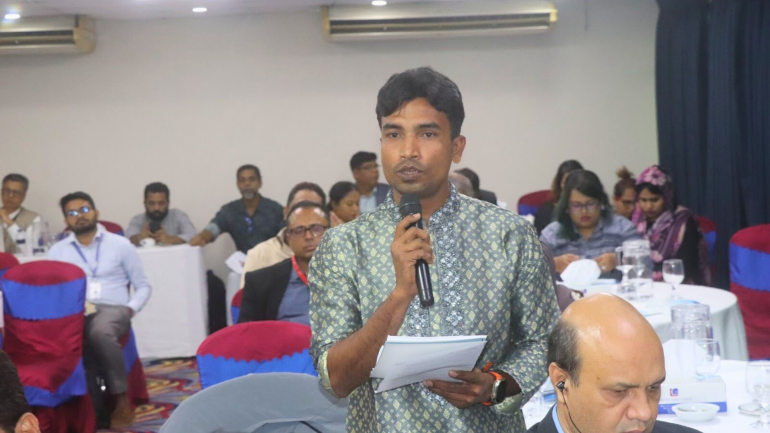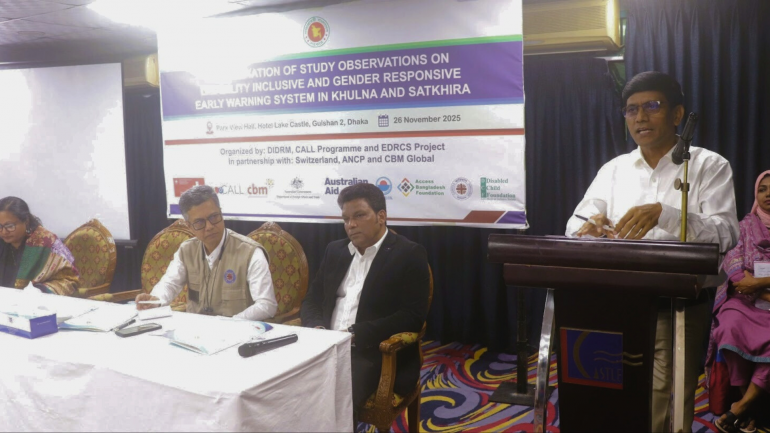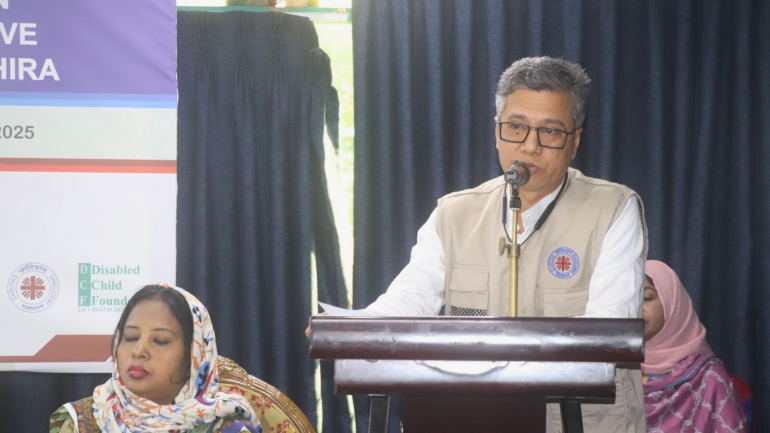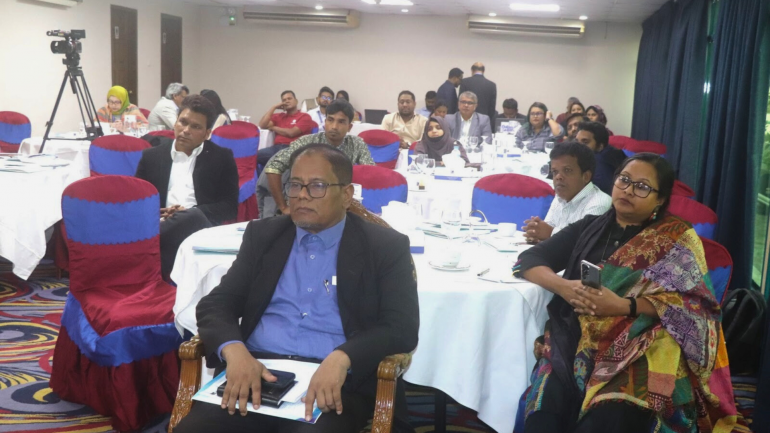Caritas Bangladesh Pushes for Inclusive Disaster Alerts

A half-day workshop titled “Dissemination of Study Observation of Disability-Inclusive and Gender-Responsive Early Warning in Khulna and Satkhira” was held at Hotel Lake Castle, Gulshan-2, Dhaka, Bangladesh on November 26, 2025.
It was organized by Nabolok Parishad, Access Bangladesh Foundation, Caritas Bangladesh, and Disabled Child Foundation, with support from the Disability Inclusive Disaster Risk Management at Khulna District (DiDRM CALL Programme) and the Establishing Disaster Resilient Communities in Satkhira (EDRCS) project.
The workshop brought together government officials, disaster management experts, and community representatives to share findings and develop a roadmap for inclusive disaster preparedness. Discussions highlighted the urgent need to integrate disability and gender considerations into early warning systems so that vulnerable groups are not left behind during disasters. The study focused on Khulna and Satkhira, two regions highly exposed to climate-induced hazards.
The program began with welcome remarks from Mr. Apurbo Mrong, Director of Programs at Caritas Bangladesh, followed by an inaugural address from Mr. Faruquee Ahmed, Deputy Secretary of Jatio Protibondhi Unnoyon Foundation. Lead Consultant of the study Mr. A M Nasir Uddin presented key findings and recommendations for strengthening disability inclusion and gender responsiveness in early warning systems.
In his speech, Mr. Apurbo Mrong stated: “Bangladesh has achieved remarkable progress in disaster management, becoming a model in South Asia through strong leadership, forecasting systems, and partnerships. Yet, climate change is increasing the frequency and intensity of cyclones, tidal waves, and floods, creating new challenges for vulnerable groups. Women, children, the elderly, and persons with disabilities often struggle to receive, understand, and act on early warnings.” He further emphasized that global commitments such as the UN CRPD, CEDAW, Sendai Framework, and SDGs call for inclusive early warning systems that leave no one behind.
Mr. Nitai Chandra Dey Sarkar, Director at the Department of Disaster Management under the Ministry of Disaster Management and Relief, was also present and delivered an inspiring speech. During the workshop, he said: “If we want to include people with disabilities and only think about inclusion in terms of disaster management, it will not be very effective. We talk about the need for elevators in buildings, easy access, and toilet accessibility—but have we ever considered whether our bus stops and railway stations are inclusive? I urge policymakers to work on these issues.”
The voices of persons with disabilities added urgency to the discussion. Sultana Khatun, a participant from Kayra Upazila in Khulna, said, “We often do not understand the warning signals issued before or during disasters. We urge the government and private organizations to ensure that these signals are communicated in ways that are accessible and understandable for us.”
Other speakers noted that announcements made through loudspeakers are often from distant locations, leaving many persons with disabilities uninformed. They called for improved communication methods and stressed that the government alone cannot address these challenges. Local and international organizations must collaborate to promote inclusive disaster preparedness. Participants also highlighted the absence of skilled rescue teams and urged the formation of specialized units trained to assist persons with disabilities during emergencies.
Floods are a common occurrence in coastal Kayra. Mamun Rahman, a physically disabled resident, shared a harrowing experience: “Once, I did not get any advance warning of a flood. Suddenly, I heard the sound of water. While going to the shelter, I got stuck in vines and almost drowned. My mother saved me by placing me in a big silver pot and floating me to safety. If I had received advance warning, my life would not have been in danger.”











